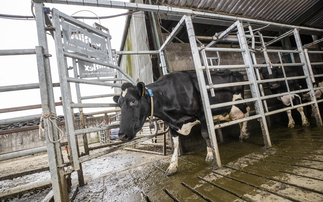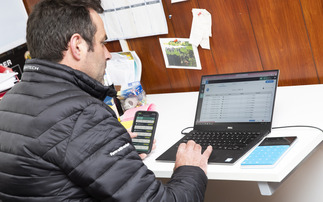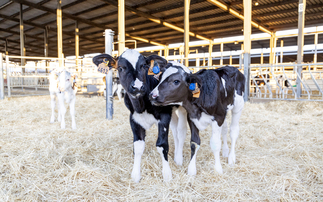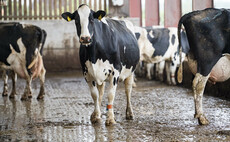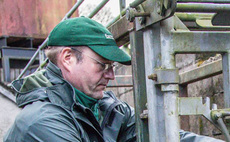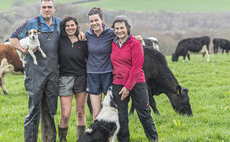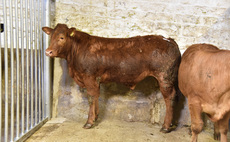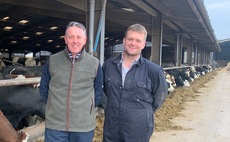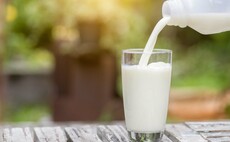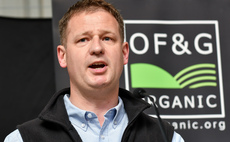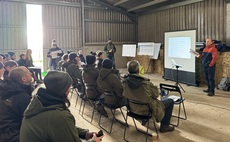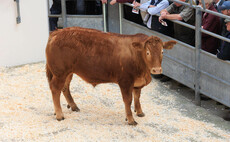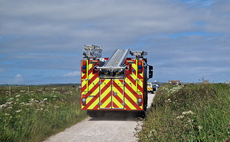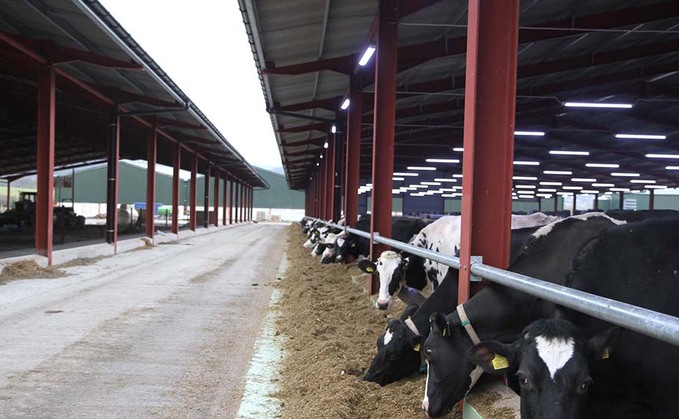
To improve his herd's performance - and fuel his passion for dairy cow genetics - Phil Bird of Woodend Farm uses a heat and health monitoring system to ensure the investment he makes in sexed semen and embryo transfers delivers the very best return for his Devon dairy farm.
Phil, and his father, John, milk 225 pedigree Holsteins under the Bartonwood prefix at Shute near Honiton in East Devon. Calving all year round, the herd produces 9,750 litres per lactation at 4.25% butterfat and 3.3% protein, with 300 followers also managed by the father and son partnership.
Phil's main focus, and the reason his passion for dairy farming is so prevalent, is on improving the herd's genetic status through the use of sexed semen and embryo transfers.
"We future-proofed the farm in 2015 by upgrading the milking parlour, cow handling facilities and housing to make it easier for one person to manage the herd," Phil explains. "Soon after, we peaked at 275 cows in milk, but that wasn't sustainable for the manpower we've got or the volume of slurry we can store, so we reduced the milking herd down to 225. Downsizing the herd has enabled us to maintain a tighter focus on each aspect of herd management, from nutrition and dry cow management, to fertility, health monitoring and genetic progression."
The farm improvements were made at a time when the Bird's original heat detection collars were coming to the end of their working life. "We were milking 200 cows at the time and achieving a pregnancy rate of 19% and conception rate of 36%. We were calving heifers at 33 months and had a voluntary waiting period of 60 days and calving index of 410 days, both of which were a little too high. Unfortunately, we couldn't afford to replace the outgoing Heatime collars, which meant we had to revert to more traditional methods of heat detection for the next three years."
Without a heat detection system in place the herd's fertility scores started to suffer, with the overall pregnancy rate falling by 2% to 17% and the conception rate falling by 4% to 32% which meant the herd's overall calving index started to rise.
"We were seeing too many negative PD tests and were relying more than ever on synchronising heats to ensure our embryo transfer work was successful," Phil continues. "We knew we needed to go back to using a heat detection system, so applied for a small business productivity grant to subsidise the cost of purchasing SenseHub collars for the cows and heifers."
The new heat, rumenation and health monitoring collars were introduced in 2018 along with several other subtle but important changes Phil and his vet have made to get the herd's fertility and productivity scores back to where they needed to be.
"We've worked closely with Blackdown Farm Vets and Ben Smit of Feedco to fine-tune the herd's nutrition and dry cow management and to make sure we're reacting appropriately to the heat and health information the SenseHub collars generate.
"With better heat detection we now know exactly when each cow or heifer should be inseminated, with the herd's overall pregnancy rate subsequently improving to 24%. The conception rate has also improved to 44%, with 95% of the heifers we put in front of the vet coming back with a positive PD result.
"At the same time, our voluntary waiting period is down to 42 days, heifers are calving at 25 months and were currently working on a calving interval of 370 which means each cow is producing more lactations and achieving peak milk production more times in her lifetime.
"We're also synchronising fewer heifers ahead of transferring embryos. In theory we don't need to synchronise at all, but it makes sense to do as many transfers at the same time to reduce costs and make the most efficient use of the technician's time.
"At £8 for a straw of beef semen, it's not the end of the world if the insemination doesn't lead to a pregnancy. However, at £35 for a straw of sexed dairy semen, or £400 for an embryo transfer, it important to make sure each animal is being served at the optimum time.
"We've inseminated 110 to 120 heifers each year since the SenseHub collars went on, and in that time, only four have scanned as not being in-calf. That's a great result for us as it means we can focus on other areas instead."
In addition to improving the herd's fertility scores, the SenseHub collars have also contributed to some important herd health benefits.
"We're producing 1,000 litres more per lactation compared to 10 years ago," Phil explains, "with the improvements we've made to the farm's milking, housing and heat detection all playing a part. But the benefits go much further than that: having an insight into each individual cow's rumenation and feed intake enables us to react more promptly to any health issues which might be developing, often before any clinical symptoms have even been seen.
"That not only saves time and money in terms of lost milk and veterinary intervention, but also allows us to work more proactively with our farm vet to carry out fresh cow checks instead of firefighting existing problems.
"The SenseHub system is so accurate that I no longer spend any time looking for cows or heifers bulling. And we aren't wasting the vet's time by presenting them with empty cows. Instead, we're able to concentrate on using the best genetics to improve the herd's performance, value and profitability, and, because we're able to spot health issues such as mastitis sooner, we're able to treat the majority of problems with non-steroidal anti-inflammatory drugs instead of antibiotics. From a sustainability and consumer confidence angle, that's a huge leap forward, especially at a time when food production is coming under such intense scrutiny.
"Using SenseHub also makes it easier to manage workloads and keep accurate records: I use the SenseHub app on my phone to tell me which cows and heifers should be inseminated and to log services, medicine usage and PD results. I also use it to generate lists of those animals which need attention when I'm away so nothing gets missed.
"Fertility drives everything else on the farm, from milk production to nutrition, veterinary intervention and culling rates, so it's imperative we're getting the basics right. Our heifer conception rate is currently at 70%, with AI at 80% and embryo transfers at 62%.
I'm happy with those figures, but there's still room to improve and we certainly aren't going to get complacent. The minute we start to think we're doing a good enough job is when things will stop improving so we'll keep plugging away and using SenseHub to fine tune our management protocols."
PHOTOS
Phil Bird's primary motive is to enhance his herd's genetic status and performance by using sexed semen and embryo transfers to introduce new bloodlines.
The SenseHub monitoring collars are key to maintaining the milking herd's health and fertility.
Heifers calve 12 months earlier thanks to improvements in heat detection, with 95% returning positive PD scans.
The Devon-based Bartonwood herd produces 9,750 litres per lactation. Fertility and health indices have improved considerably since 2018 when the SenseHub collars were introduced.








